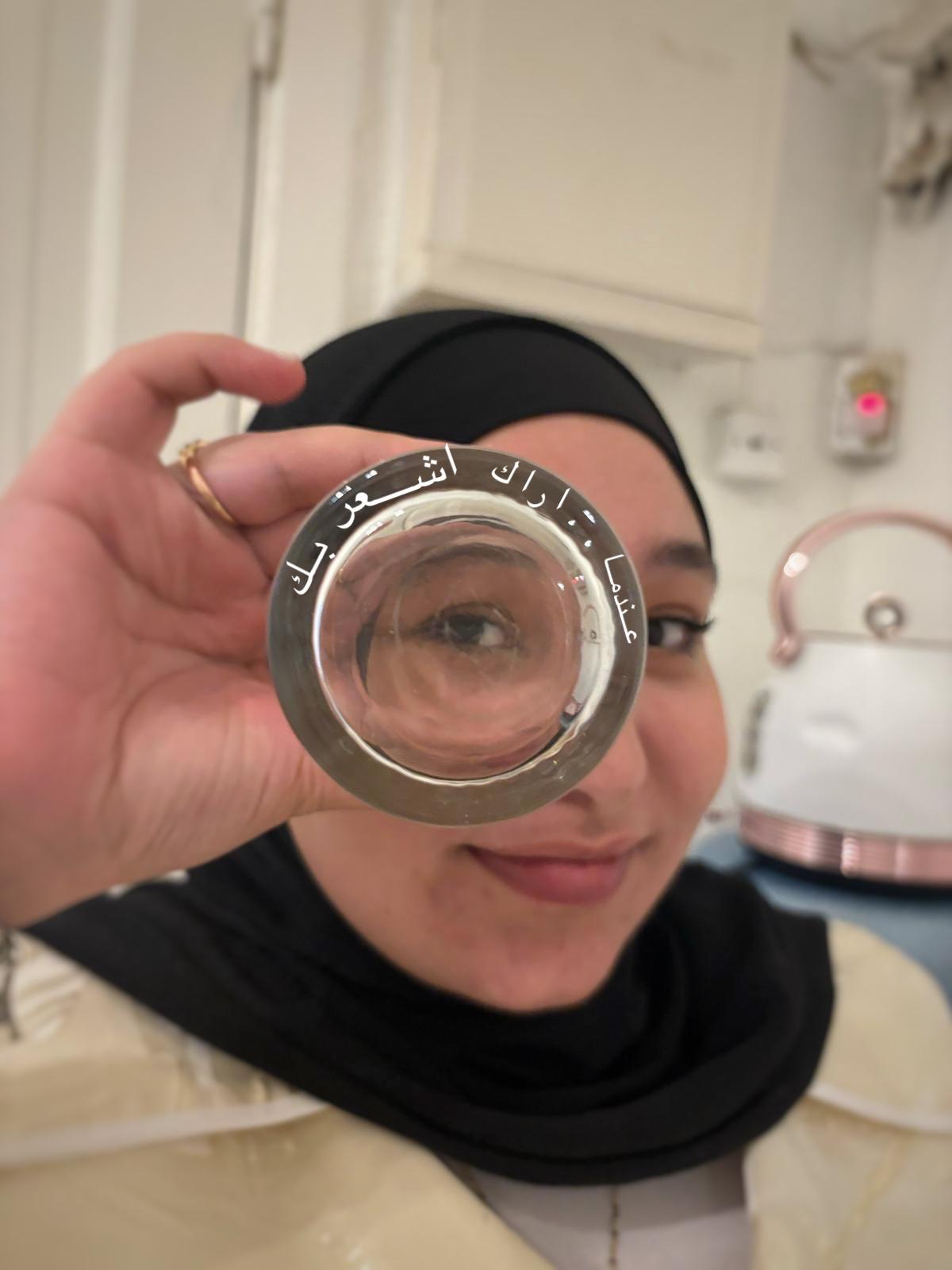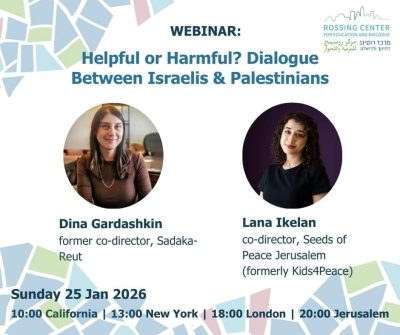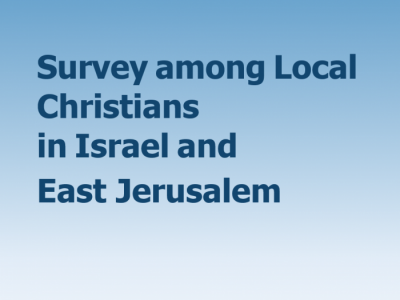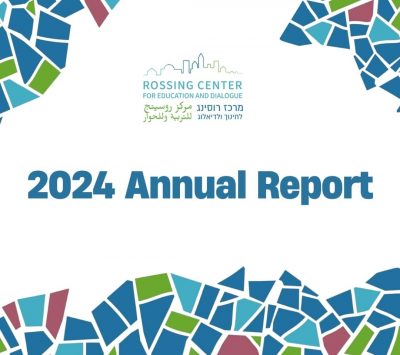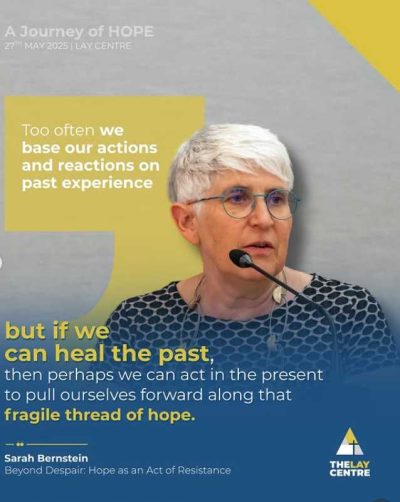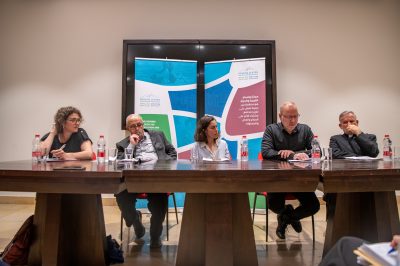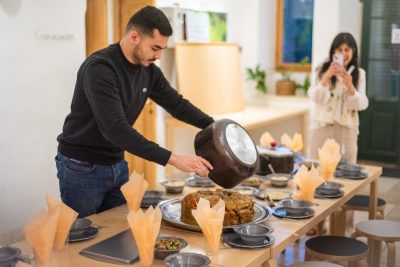Dear Friends,
The unpredictable weather reflects our inner feelings—chopping and changing as we struggle to deal with everything the world is throwing at us.
At the Rossing Center, we try to hold on to the hope that the ceasefire will move into the next phase, the war will end and all hostages will be returned. Even as we wait, our activities prove to us again and again that there is another way—we can choose to build a better future together.
Saturday marked International Women’s Day, and we take this opportunity to highlight our appreciation for women leaders and changemakers, as well as their contributions to our organization and the broader social transformations that continue to grow. Despite significant progress, the path to full equality and inclusion is still ongoing, and as a society, we strive to expand and deepen the role of women in the public, religious, and community spheres.
February brought us much-needed light during a time when we needed it most, and we are excited to share with you what we have experienced throughout this month:
| Women at the Helm: Reimagining Religious Leadership |
| “In interfaith dialogue, one of the basics is hearing each other’s stories, hearing each other’s suffering, and I think women have been particularly emphasizing that”. Rabbi Naamah Kelman |
For many years, religion leadership was exclusive domain of man- but not anymore. Women have begun to forge their paths and break the conversation of religious leadership, reshaping it in the process.
In honor of the upcoming International Women’s Day, the latest webinar was dedicated to pioneering women in the field of religion:
Rabbi Naamah Kelman is the first woman ordained as rabbi in Israel.
Rev. Sally Azar is the first woman ordained to the priesthood in the Holy Land.
Unfortunately, Judge Hana Mansour-Khatib was unable to join us due to a family bereavement. We send her our condolences and hope to find another opportunity to host her on a different topic.
Led by Dr. Sarah Bernstein, the discussion explored the role of these women in religious society and the resistance they encountered as religious leaders. The conversation led to fascinating insights and connections, both across the different fields and within each community.
The Women’s View of Ramle: A women’s group at the Open House in Ramle
The Ramle Women’s Stories group brings together female students from various religious backgrounds to explore identity in a meaningful way and act together for social change. Each session focuses on shared and different experiences, covering topics such as personal connections to the city, its influential figures, and broader aspects of individual, collective and gender identity.
“Suddenly, when we talked about identity and I was asked what it means to be Arab, I couldn’t answer. I felt the need to explore my identities all over again.”
As part of the program, participants are carrying out a project reflecting their visions for Ramle. This project is developed through a photography workshop, where students capture images and videos of Ramle today and Ramle as they would like to see their city in the future. The workshop serves as a creative tool for processing their experiences in a practical way, allowing each participant to offer a glimpse into her inner world. At the end of the year, the workshop’s outcomes will be presented in a collective exhibition.
he moments we shared with our participants over the past month, along with the challenges they raised, serve as a source of inspiration and hope for us. The active participation from various communities proves that there is room for change and that a new reality can be built, even in such complex times. We continue to support teachers, students, and leaders with a growing sense of mission. Every step we take strengthens the relevance of our work and deepens our belief that meaningful change is possible in the reality we share.
As March, Adar and Ramadan begin, we remain committed to working toward a truly shared, respectful, and inclusive society. To all who are observing, Ramadan Kareem!

